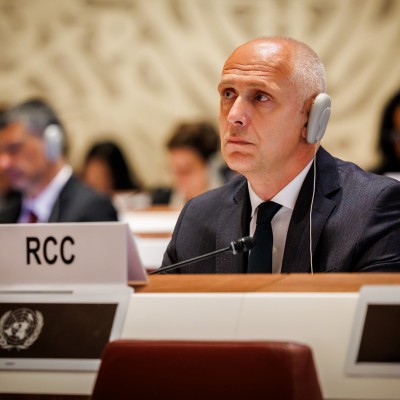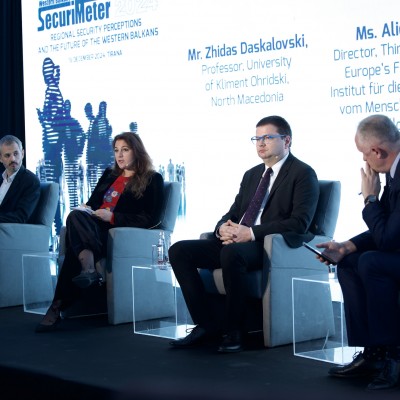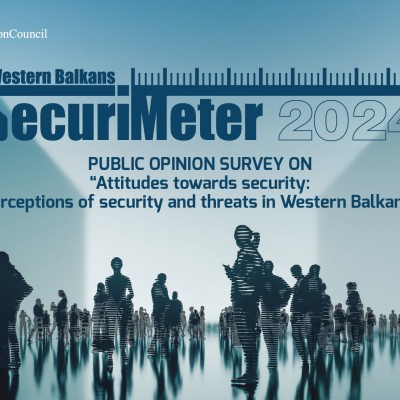Preparation of South East European justice and home affairs strategy starts in Sarajevo, under RCC auspices
17 December 2009

Participants of the conference on multi-annual South East European strategy on justice and home affairs, organized by the RCC Secretariat, Sarajevo, 16-17 December 2009. (Photo RCC /Selma Ahatovic-Lihic)
SARAJEVO – A two-day conference on multi-annual South East European (SEE) strategy on justice and home affairs ended in Sarajevo today. The event, organized by the Regional Cooperation Council (RCC) Secretariat, marked the beginning of work on this important regional document.
“The main objective of the strategy is to identify and centralize regional priorities, needs and objectives in the justice and home affairs field over the next few years, and recommend viable solutions”, said Deputy RCC Secretary General, Jelica Minic, while opening the conference.
“The strategy will have to consider the effects of the global financial and economic crisis on crime phenomenon in SEE, and provide solutions compatible to the complex system of interrelated justice and home affairs institutions in the region, to maximize results in the fight against all forms of crime as well as support EU integration efforts.”
The conference agreed that the strategy would integrate judges, prosecutors and justice officials with the police and law enforcement to address regional cooperation in the areas such as: fight against trans-border organized crime; anticorruption; migration, asylum and refugees; administration of penitentiaries and probation services; civil matters, labour law, and mutual recognition of court decisions. It will also support the implementation of the EU related acquis and other international and regional conventions. A Regional Strategy Advisory Group will be created to finalize the strategy and assist the RCC Secretariat in carrying out the practical work during this process.
Aşkin Çakmak of the Turkish Chairmanship-in-Office of the South-East European Cooperation Process (SEECP) said that the implementation of the strategy would ensure an effective fight against organized crime and corruption on the regional level, highlighting the RCC role in this context. “We consider the RCC to be a precious cooperation mechanism and are pleased to note that the organization has already become the main interlocutor for international organizations engaged in South East Europe.”
“Regional cooperation is of utmost importance not only for continuing the overall development of the Western Balkans but also for its further EU integration. This is particularly valid when it comes to justice and home affairs issues”, said Anders Hedlund of the Swedish EU Presidency. He urged the region to use, develop and increase the efficiency of the cooperation tools at hand, primarily the RCC and the SEECP.
The conference participants included high officials from SEE ministries of justice and interior, prosecutors general offices, superior judicial councils, representatives of EU institutions, EU police and judicial agencies in charge of cooperation on criminal matters, the SEECP Chairmanship-in-Office, the Council of Europe, the United Nation Office on Drugs and Crime, the Organization for Security and Co-operation in Europe, professional associations and international experts.
The next step in the preparation of the multi-annual South East European strategy on justice and home affairs will be the appointment of representatives in the Regional Strategy Advisory Group, expected by the end of January 2010. The first draft of the strategy is expected next April, with the final version adopted by the end of 2010.



